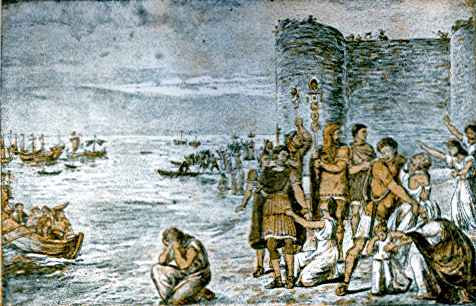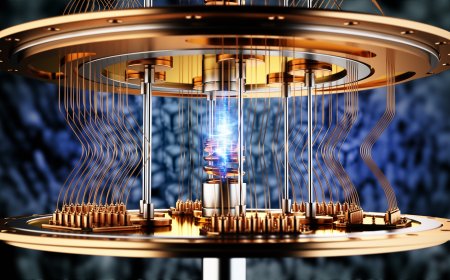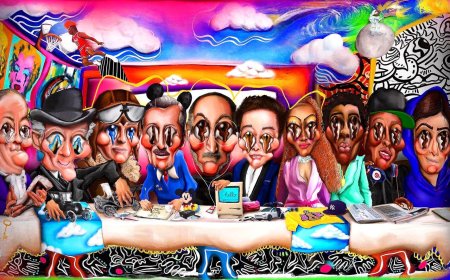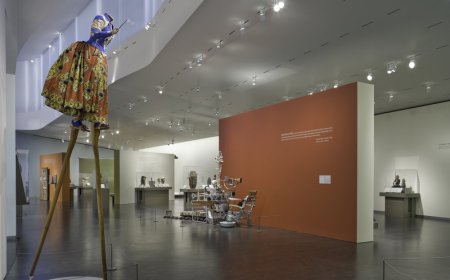The History of Science Key Milestones You Should Know
Here are several major milestones in the history of science, ranging from early innovations to contemporary advancements: the invention of tools and use of metals, the Scientific Revolution, the Industrial Revolution, and the rise of the digital age — all shaped by influential thinkers such as Copernicus, Galileo, Newton, and Einstein.
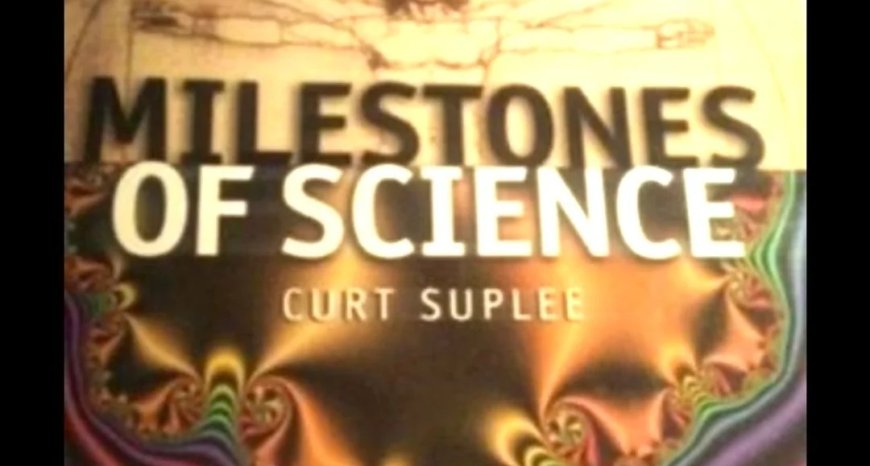
The history of science is a vast and intricate narrative that chronicles the evolution of human understanding of the natural world, spanning from prehistoric observations to contemporary scientific practices. Notable milestones in this journey reflect the sig- nificant advancements made across various civilizations, including the contributions of ancient cultures such as Mesopotamia, Egypt, and China, which laid the ground- work for modern scientific inquiry. The transition from mythological explanations to systematic observation and experimentation marked pivotal shifts during the Greek classical period and the subsequent Hellenistic era, profoundly influencing Western thought and the development of the scientific method.
As the Middle Ages unfolded, scientific progress was intertwined with religious doc- trine, yet figures such as Al-Battani and Roger Bacon began to challenge traditional paradigms, leading to a gradual emphasis on empirical evidence. The Renaissance heralded a resurgence of interest in classical knowledge and artistic expression, culminating in the Scientific Revolution, where luminaries like Galileo Galilei and Isaac Newton redefined the principles of inquiry, emphasizing observation and math- ematical reasoning. This period also saw the emergence of Enlightenment thought, which further propelled scientific advancements and inspired revolutionary social and political changes.
The 19th century introduced groundbreaking theories, notably Charles Darwin's the- ory of evolution, which fundamentally transformed biological sciences. Concurrently, advancements in chemistry and the emergence of germ theory reshaped public health and medical practices. The century's technological innovations, including the telegraph and the telephone, revolutionized communication and the dissemination of ideas, setting the stage for the rapid scientific progress of the 20th century.
In the 20th century, science witnessed unprecedented advancements across diverse fields, marked by significant contributions to biology, physics, and information technology. The digital revolution of the 21st century has further accelerated scientific re- search, facilitating interdisciplinary collaboration and public engagement in science. This ongoing evolution highlights the critical role of science in addressing contempo- rary global challenges and underscores the importance of fostering scientific literacy in society.[1][2][3][4][5]
Prehistoric and Ancient Science
Prehistoric Developments
The roots of science can be traced back to prehistoric times, where early humans began to make sense of their environment through observation and experimentation. Archaeological evidence suggests that prehistoric peoples utilized rudimentary tools and engaged in practices that indicated a basic understanding of their surroundings. These early innovations laid the groundwork for more formalized systems of knowledge.
Ancient Civilizations
Mesopotamia and Egypt
The earliest documented scientific work emerged from civilizations such as Mesopotamia and Ancient Egypt around 3000 to 1200 BCE. These societies made significant contributions in mathematics, astronomy, and medicine, which profoundly influenced later Greek philosophy and science[1]. Mesopotamian scholars developed early forms of writing, allowing for the documentation of scientific ideas and obser- vations.
Greek Natural Philosophy
With the advent of the classical period, Greek thinkers began to formalize scientific in- quiry. Natural philosophers, like Aristotle, sought explanations of physical phenomena based on observation and reasoning rather than mythological explanations[1]. The Greek conception of the world, enriched by the contributions of earlier civilizations, became a cornerstone of Western science.
Hellenistic Influence
The fall of the Western Roman Empire saw a decline in the transmission of Greek knowledge within Latin-speaking Europe. However, the Byzantine Empire preserved Greek scientific texts, which were later translated into Arabic during the Islamic Golden Age (8th–14th century CE). This cultural exchange facilitated the resurgence of classical knowledge in Western Europe, laying the foundations for the Renais- sance[1].
Early Technological Innovations
In ancient China, notable advancements were made in various fields, including engi- neering and agriculture. Among the most significant were the Four Great Inventions: paper, gunpowder, the compass, and printing. Paper, for instance, revolutionized the way information was recorded and shared, significantly impacting education and communication[6][7].
The Role of Trade
Trade routes, such as the Silk Road, played a crucial role in the exchange of ideas and technologies between East and West. These interactions not only disseminated Chinese inventions but also facilitated the transfer of Greek and Roman scientific thought into the Islamic world and eventually back to Europe.
The Middle Ages
The Middle Ages, spanning from the 5th to the late 15th century, marked a significant period in the history of science characterized by both continuity and transformation in scientific thought and practice.
Development of Scientific Thought
During this era, significant advancements were made in various scientific fields, particularly in astronomy, mathematics, and medicine. Notably, the works of Indian and Islamic scholars played a pivotal role in the development of mathematics, with influential figures like Paramesvara contributing to astronomical concepts and
calculations[2][6]. The introduction of the decimal number system from India through Arabic translations had a lasting impact on mathematical practices in Europe, leading to the eventual adoption of more sophisticated numerical techniques[6].
Astronomy and the Influence of Religion
Astronomy during the Middle Ages was deeply intertwined with religious beliefs. Scholars like Al-Battani and Al-Farghani in the Islamic world made significant con- tributions to astronomical knowledge, which were later transmitted to Europe. The reliance on celestial observations for religious calendars and agricultural cycles fur- ther emphasized the connection between science and spirituality during this time[8]. However, as the Scientific Revolution began to take shape in the late Middle Ages, this relationship faced scrutiny, particularly with events like the Galileo affair, which highlighted tensions between scientific inquiry and religious doctrine[9].
The Shift Towards Empirical Observation
The Middle Ages also witnessed a gradual shift towards empirical observation and experimentation. The works of philosophers and scientists such as Roger Bacon laid
The Renaissance
The Renaissance, spanning from the 1350s to the 1650s, marked a profound trans- formation in art, culture, and science across Europe. This period is characterized by a renewed interest in the individual and the surrounding world, moving away from the collective piety that had dominated the preceding medieval era. The Renaissance emphasized human experience and expression, allowing individuals to engage with various disciplines and ideas as participants in a broader context rather than in isolation[11][10].
Key Figures and Contributions
Artists and Thinkers
Notable figures such as Leonardo da Vinci and Michelangelo not only advanced artistic techniques but also integrated scientific inquiry into their work. Da Vinci, for instance, meticulously studied human anatomy to enhance the realism of his paint- ings. These artists played a critical role in blending art with the scientific exploration of the human condition and the natural world[11].
The Scientific Revolution
The Renaissance laid the groundwork for the Scientific Revolution, which began in the early modern period and fundamentally changed how knowledge was pro- duced and understood. This era encouraged questioning of traditional beliefs and
Galileo, influenced by earlier Renaissance thinkers like Nicholas Cusanus, utilized a methodology that combined spirituality with scientific truth-seeking. His work repre- sented a significant departure from the purely theological explanations of the natural world prevalent in medieval thought. The conflict and dialogue between science and religion became a defining theme of the era, ultimately leading to a more secular view of knowledge[10][3].
The Influence of Enlightenment Thought
The ideas developed during the Renaissance set the stage for the Enlightenment in the 17th and 18th centuries. Enlightenment thinkers, building on Renaissance principles, applied scientific reasoning to societal issues, seeking to understand
The culmination of these intellectual movements resulted in a profound shift in Euro- pean thought, establishing a legacy of scientific inquiry and philosophical exploration that would shape modern Western civilization. The Renaissance, therefore, not only transformed artistic and cultural landscapes but also revolutionized scientific thought, leading to the structured disciplines we recognize today[2][3].
The Age of Enlightenment
The Age of Enlightenment, often described as the period of cultural and intellectual awakening primarily in Western Europe from the late 17th century to the late 18th century, marked a profound transformation in human thought. This era is charac- terized by a robust emphasis on reason, science, and the importance of individual rights, which emerged against the backdrop of the Scientific Revolution of the 17th century. Many historians trace the origins of the Enlightenment to the publication of Isaac Newton's "Principia" in 1687, which fundamentally altered scientific discourse and established a new framework for understanding the universe through gravity and mechanics[3][13].
Philosophical Foundations
The philosophical landscape of the Enlightenment was shaped significantly by thinkers such as René Descartes, whose "Discourse on the Method" advocated for logical reasoning as a means of acquiring knowledge. This shift in thought encouraged a move away from Aristotelian metaphysics towards a more empirical
Rise of Rationalism and Empiricism
The Enlightenment saw the rise of rationalism, particularly through the works of Descartes, who emphasized the power of reason to navigate doubt and uncertainty. This intellectual current was complemented by empiricism, as articulated by John Locke, which underscored the significance of experience and observation in the quest for knowledge. Together, these movements laid the groundwork for modern scientific inquiry, extending beyond traditional domains of physics and astronomy into social sciences, economics, and political philosophy[13][14].
Social and Political Implications
The Enlightenment was not merely an intellectual movement; it also spurred sig- nificant social and political changes. Ideas surrounding democracy, human rights, equality, and the separation of church and state gained traction, leading to notable resistance from established government and religious institutions. Thinkers such as Immanuel Kant and Adam Smith became influential in promoting these ideas, which would eventually contribute to revolutionary movements, including the American and French Revolutions[13][15].
The 19th Century
The 19th century marked a period of significant transformation in the history of science, characterized by groundbreaking theories, advancements in technology, and a shift in societal understanding of scientific principles.
Evolution and Natural Selection
Perhaps the most pivotal development during this century was the formulation of the theory of evolution by natural selection, independently proposed by Charles Darwin and Alfred Wallace. Detailed in Darwin's seminal work, , published in 1859, this theory posited that the characteristics of all living organisms, including humans, are shaped through natural processes over extensive periods. This revolutionary idea fundamentally altered the landscape of biological sciences and provided a framework for understanding the diversity of life on Earth, influencing both scientific inquiry and popular perception of humanity's place in the universe[2][16].
Advances in Chemistry
The 19th century also witnessed substantial advancements in chemistry, building upon the foundation laid during the previous centuries. The chemical revolution led to the establishment of modern chemistry as a distinct scientific discipline. The develop- ment of the scientific method emphasized observation and experimentation, leading to critical discoveries in chemical reactions and the formulation of new substances. This period saw the birth of large-scale chemical manufacturing, revolutionizing production processes and giving rise to synthetic materials that significantly impacted daily life and industry[17][18].
The Emergence of Germ Theory
In parallel with advancements in biology and chemistry, the 19th century saw the emergence of germ theory, which fundamentally changed the understanding of dis- ease and public health. The recognition that microorganisms could cause infections led to significant improvements in medical practices and hygiene, paving the way for modern medicine[19].
Technological Innovations and Communication
Technological advancements during the 19th century were not limited to science alone. The invention of the telegraph by Samuel Morse in 1837 and the telephone by Alexander Graham Bell in 1876 revolutionized long-distance communication, effectively shrinking the world and facilitating the rapid exchange of ideas. This era also marked the rise of electric technology, which transformed various industries through automation and the creation of new products, fundamentally altering every- day life[20][6].
The 20th Century
The 20th century was marked by unprecedented advancements in science and technology, building upon the foundation laid in the 19th century. It was a period characterized by significant developments across various fields, including physics, biology, and information technology.
Technological Innovations
The century saw the perfection and widespread application of technologies initially conceived in the 19th century, such as the automobile and the airplane. The first successful airplane flight by the Wright brothers in 1903 set the stage for rapid advancements in aviation, with commercial airliners emerging by the century's end to transport passengers over long distances in mere hours[2].
Communication and Information Technology
The invention of radio and television revolutionized the dissemination of information, fundamentally altering how societies interact and share knowledge. The advent of computers in the mid-20th century further transformed communication, allowing for the processing and analysis of vast amounts of data[2].
Advances in Biology
Biological sciences also experienced remarkable progress during this period. The work of researchers like Dr. Jonas Salk led to the development of vaccines that successfully eradicated diseases such as polio, while advancements in genetics, including gene mapping and sequencing technologies, made the Human Genome Project possible, ultimately enhancing our understanding of human biology and disease[2][6].
The 21st Century
Advancements in Science and Technology
The 21st century has witnessed remarkable advancements across various scientific fields, driven by rapid technological innovations and increased collaboration among researchers globally. One of the most significant developments has been in the
Impact of the Digital Revolution
The digital revolution has transformed the way scientific research is conducted and disseminated. Access to vast amounts of data and computational power has enabled researchers to analyze complex problems more efficiently and accurately. Moreover, the rise of online platforms and open-access journals has democratized access to scientific knowledge, allowing a broader audience to engage with and contribute to scientific discourse[4].
The Role of Interdisciplinary Research
Interdisciplinary research has gained prominence in the 21st century, as complex global challenges, such as climate change and public health crises, require collab- oration across different scientific disciplines. Initiatives that combine insights from physics, biology, and social sciences have led to innovative solutions and a deeper understanding of the interconnectedness of various systems[2].
Public Engagement and Popularization of Science
The popularization of science continues to evolve, with an increasing emphasis on engaging the public in scientific discussions. Various platforms, including social
References
[1] : Antoine Lavoisier - Wikipedia
[2] : List of Chinese inventions - Wikipedia
[3] : Copernican Revolution - Wikipedia
[4] : History of science - Wikipedia
[5] : UNESCO Portal to the Heritage of Astronomy - Show theme
[6] : The Age of Enlightenment and the Scientific Revolution
[7] : Galileo and the Birth of Modern Science - TheCollector
[8] : Famous People of the Enlightenment - Biography Online
[9] : Science and the Enlightenment - A Scientific Revolution - Explorable [10]: The 7 Main Contributions of the Age of Enlightenment to Society
[11] : The Enlightenment: Summary, Timeline & Causes - GeeksforGeeks
[12] : How did the scientific revolution lead to the enlightenment?
[14] : Significant Milestones in Chemistry: A Timeline of Influential Chemists
[15] : Science in The Age of Enlightenment - LiquiSearch
[16] : Science in the Age of Enlightenment - Wikipedia
[17] : Antoine Lavoisier - Oxygen, Combustion, Chemistry | Britannica
[18] : The History of Chemistry: From Alchemy to Modern Science
[19] : The Popularization of Science | History of Western Civilization II
[20] : Understanding Special Theory of Relativity: Implications and Applications [undefined]: What are the greatest scientific discoveries of all time?







